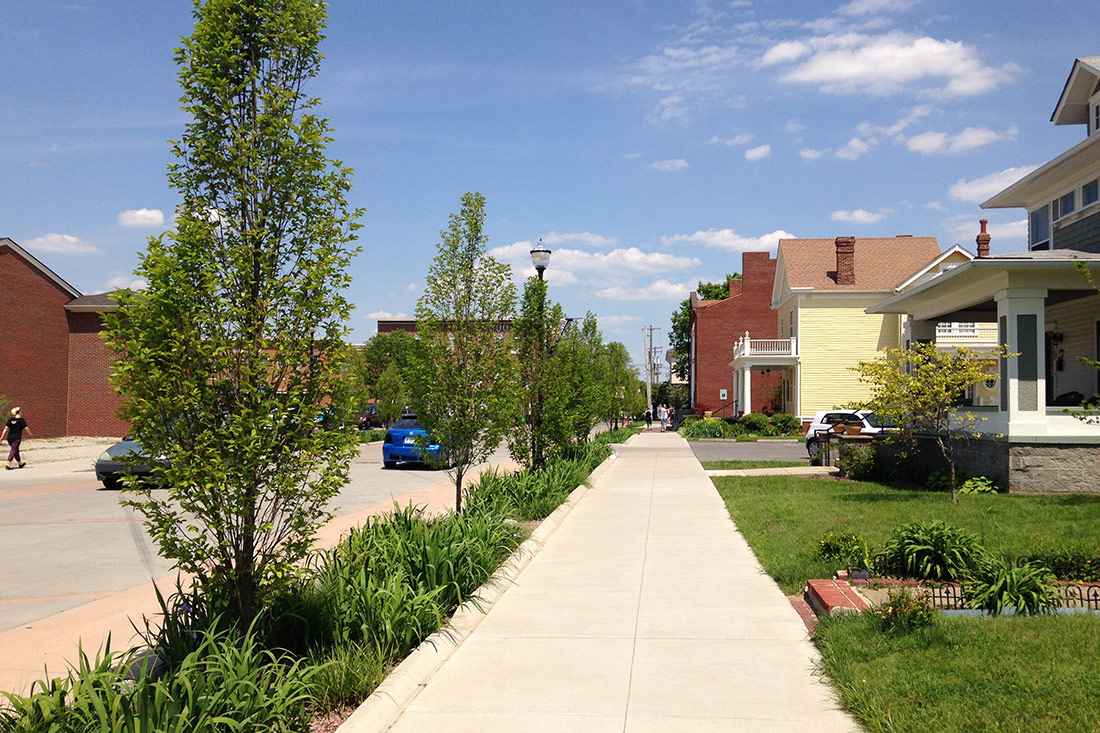Congratulations to Mike Petrig for correctly identifying our last sidewalk photo as Bellaire Avenue looking toward Frankfort Avenue in the Clifton neighborhood.
Here’s a new sidewalk challenge for this week ready to be identified in the comments below for your chance to win an official Broken Sidewalk magnet. (The rules: First correct response wins; Leave a real email so we can get in touch if you win; No repeat winners for four months; Comments must be left on this news roundup.) Good luck!
And now on with the week’s top urbanism #cityreads in the news:
Portraits of homeless people using libraries. Visual evidence of our greatest national treasure and the “last bastion of democracy.” BoingBoing
Why New Orleans Says “No, Thanks” to Disaster Research. “A crisis, the saying goes, is a terrible thing to waste. But as disaster research becomes more common — every day, a disaster strikes somewhere on earth—the field is raising ethical questions about how tragedy turns into tenure-track papers.” Next City
Mapping the Grand Canyon’s Gruesome Legacy of Death. Your weekly quantitative fix. City Lab
Where the Sidewalk Ends. The over policing of the spaces of communities of color continues to be a national epidemic. Washington City Paper
Why Bikeshare Doesn’t Appeal to Low-Income Commuters. “While bikeshare garners a lot of attention from the white and wealthy, it is a less obvious choice for low-income communities. Difficulties include weather, time constraints, and overall demand for non-auto modes.” Not to mention non-credit-based access, lack of physical accessibility, redundancy due to bike ownership, and local rental options. Planetizen
Which is the safest city in the world? Or, how I learned to accept that being a human inherently required a certain level of social precarity, and stopped reading silly lists about safety. Guardian Cities
Let Syrians Settle Detroit. One of the most fascinating plans to re-inhabit a disinvested in city. New York Times
Highways gutted American cities. So why did they build them? Why did America cities invest so heavily in an urban program that would decimate their connectivity and neighborhood cohesiveness? Joseph Stromberg investigates. Vox
There Are No Urban Design Courses on Race and Justice, So We Made Our Own Syllabus. How can we build inclusive cities when we don’t even have a good syllabus? Brentin Mock gives justice oriented urban designers some options. City Lab
Fractal Formations: The Fascinating Future of Urban Growth. Tom Beddard creates speculative human urbanization patterns through art. Web Urbanist
The Most Diverse Cities Are Often The Most Segregated. Nate Silver explores how diversity can lead to segregation. FiveThirtyEight Economics
Stranded: How America’s Failing Public Transportation Increases Inequality. The link between unequal public transit and inequality. City Lab
Why gonzo journalism is crucial to our understanding of cities and their tribes. A case for ‘Gonzo’ urbanism. Guardian Cites



Park DuValle??